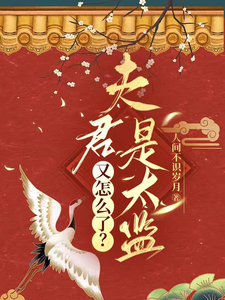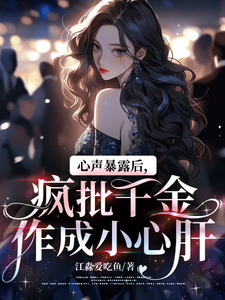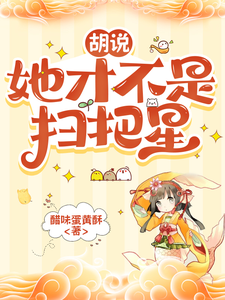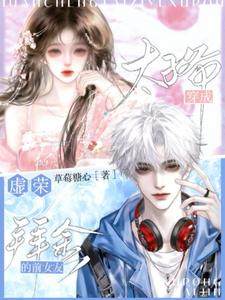As soon as the weather turned hot, the cicadas' cries rose with the sweltering heat. The sun blazed fiercely, so scorching that even Lei Ting, the dog, lay panting on the ground with its tongue lolling. Tao wielded a long bamboo pole under the shade of a tree, trying to catch cicadas, her floral blouse stained with uneven patches of sweat.
She wasn’t particularly tall, and even on tiptoe, she could barely reach the branches. To make matters worse, Qilin, the cat, kept darting up the tree to cause mischief—when the pole moved east, its furry paws swiped east; when the tip shifted west, the cat leaped west.
Frustrated, Tao rolled up her sleeves, her almond eyes widening as she prepared to climb the tree and catch the troublemaker. Nearby, Fu Xing carried a bucket to water the vegetable patches. He pinched a hanging loofah on the trellis and grinned at Tang Er, who was butchering a chicken. "The loofahs are ripe. Should we ask Madam Shen if we can pick a couple today to make soup?"
Madam Shen had left at dawn with Ninth Brother for the morning market. They hadn’t bought much, except for three plump young roosters. She claimed she’d been tempted by how delicious they looked and wanted to try making a big-plate chicken dish.
Tang Er and Fu Xing chuckled in agreement—simple-minded men never overthought things. Only Tao stifled a knowing smile. It wasn’t just about cravings. The Xie family had recently sent betrothal gifts, and Ninth Brother had taken leave from the academy. Today was his last day at home, so Madam Shen was finding every excuse to fatten him up.
Every time Ninth Brother and Ji Brother returned home from the academy, they’d regain some plumpness in their cheeks. But within half a month of going back, their faces would thin out again. By the next holiday, Madam Shen would have them round and rosy once more. She always joked it was "gaining three pounds every festival."
Tao hadn’t studied much and didn’t understand the allusion behind the saying, but she thought it made perfect sense—who didn’t feast during holidays? With so many delicious dishes, gaining weight was inevitable. Only Ninth Brother found the phrase endlessly amusing.
"This loofah is really tender, it’ll taste great," Fu Xing mused, tilting his head as he examined the vines. "Should I go ask Madam Shen about making loofah soup?"
Tang Er swung his cleaver without looking up. "You slept in and missed it. No need to ask—Madam Shen already had her eye on the loofahs this morning. She also said to pick some amaranth to cook with century eggs."
In summer, amaranth and loofah thrived. July loofahs were the most tender, perfect for making salted egg and loofah soup—light, sweet, and refreshing. Amaranth grew abundantly all season, ready to harvest every forty to fifty days. The tender leaves, cooked with century eggs, were equally delicious.
"Alright, I’ll pick them now." Fu Xing set down the wooden bucket and eagerly fetched a basket to gather loofahs and amaranth. "This year’s loofahs are plump and even, better than last year’s. Look, even the stems are still green."
Tang Er, gripping a chicken wing in one hand and a bowl for blood in the other, called over his shoulder, "Pick the firmer ones—they’re the tenderest."
Tao, pocketing the cicadas she’d caught, added, "And the ones with more fuzz taste better!"
"I know. None are too soft this season anyway. We’ll leave a couple of the big, crooked ones to make pot scrubbers later. The rest we’ll eat while they’re young and tender." Fu Xing’s mouth watered as he spoke. His former employer had been skilled at cooking loofah, even giving it an elegant name: "Yu Si Soup."
The three were so absorbed in the loofah discussion that they didn’t notice the commotion at the front yard.
It was noon, and the shop was quiet, with only Shen Miao inside tallying accounts. Tao had seized the rare opportunity to clear the tree of cicadas.
For days, their shrill cries had been unbearable, ruining midday naps. They were nothing but noisy pests.
Sister Xiang and Chen Chuan had retreated indoors to rest, so Tao took the chance to silence the cicadas before they woke the children.
Especially Chen Chuan. He’d spent the last two nights helping Lawyer Deng organize case files. Earlier, he’d even assisted in a "cow birthing lawsuit." When the opposing lawyer cornered Lawyer Deng with classical references, Chen Chuan had dug up an obscure statute from the Song Penal Code about "veterinary malpractice," turning the tide and winning the case over whether the cow owner or the vet was responsible for the "one body, two lives" tragedy.
Since then, Lawyer Deng treated him like a son, boasting that his two biological sons combined weren’t half as sharp-tongued as this apprentice. Even the magistrates and clerks at the yamen now knew this young lawyer, who barely reached the height of the judge’s bench. No wonder Chen Chuan was stumbling from exhaustion—he needed the sleep.
As for the captured cicadas, Tao had plans. Though few, they wouldn’t go to waste.
Even a mosquito’s legs are meat—she’d have Madam Shen fry them alongside the fish for a crispy, fragrant snack.
Just as she was washing the cicadas, her sharp ears caught the sound of a carriage stopping outside. She was about to check if a customer had arrived when Tang Er called, "Tao! Quick, bring hot water from the stove to scald the feathers, hurry!"
"Coming!" She dropped the bamboo pole and rushed to the kitchen.
After fetching the water, she deftly grabbed a winnowing basket to collect the plucked feathers. Once cleaned and dried, they’d be used for shuttlecocks, dusters, or sold to merchants who supplied the Armory Directorate—chicken feathers were essential for fletching arrows and marking military banners.
Light as they were, not a single feather went to waste.
Tao squatted by the ditch, scrubbing the feathers with soapberries before patting them dry with a ragged cloth. She spread them to air, so engrossed in her task that she forgot about the carriage.
Until Madam Shen’s voice rang out as usual: "Tao, a customer’s here! They want fish ball noodle soup. You tend to them—I’ll start cooking."
Tao hurriedly agreed, flattening the last of the feathers and warning Tang Er and Fu Xing to keep Qilin and Lei Ting away. She dashed through the corridor, first preparing tea and a warm towel in the kitchen before lifting the door curtain to enter the shop.
Inside stood a middle-aged woman in a faded indigo jacket, her face hidden under a veil. She didn’t sit but stood stiffly, hands clenched nervously in front of her.
Though Tao found her oddly familiar, the scattered chicken feathers preoccupied her. Smiling brightly, she said, "Please sit, madam. Have some tea and freshen up with this towel. The noodle soup will be ready soon. We also have excellent sliced meat—would you like a plate?"
The woman remained standing, shaking her head after a long pause.
Tao gestured again. "Then please take a seat. I’ll bring your soup shortly."
With that, she hurried back to the kitchen.
The woman trembled as she raised her hand and lifted the veil, her eyes—lined with fine wrinkles—fixed intently on Tao, who had fluttered into the room like a little bird. The face beneath the veil, nearly identical to her own, was already drenched in tears.
Tao didn’t recognize her. Instead, she leaned close to Shen Miao, who was scooping up large fish balls, and whispered, "Madam, that lady outside… she’s acting so strangely."
Shen Miao nearly lost her composure. Hurriedly, she ladled out the noodles, piling extra fish balls on top before pouring broth over them. With a smile, she handed the bowl to Tao and said, "Don’t gossip about customers. Go serve her quickly."
Tao stepped out, announcing brightly, "Here’s your noodle soup!"
The woman finally sat down, her slender frame upright, hands folded neatly in her lap.
Tao found her increasingly familiar, yet she couldn’t bring herself to believe it. As she set the bowl before the woman, she deliberately slowed her movements, stealing glances at her all the while.
After placing the soup down, she clutched the tray and walked away, pausing every few steps to look back. It felt like her, but Tao didn’t dare speak up. How could her mother possibly be here? That wretched, miserly brothel madam would have chained her down—she’d never let her travel so far!
Yet her chest burned as if scalded by hot soup, aching fiercely. Tao trudged back to the kitchen, her steps heavy. After a moment’s hesitation, she crouched down, gripping the edges of the curtain and peering through the gap.
The woman picked up her chopsticks and began eating, her head bowed, the veil still covering her face.
Disappointed, Tao couldn’t tear her eyes away.
Shen Miao stood behind her, mimicking her curious stance. Seeing how engrossed Tao was, she teased softly, "Tao, what are you staring at?"
Tao turned and pressed a finger to her lips. "Madam, I must be seeing things. That lady’s figure looks so much like my mother’s… but she’s still back in Daming Prefecture…" Her voice trailed off.
She must have missed her mother too much.
When she was little, one of her mother’s close friends—Aunt Cai Bo—had lost her voice and was demoted to training the younger girls. Later, when she fell ill, she was relegated to menial tasks, living in the servants’ quarters and often going hungry.
Tao’s mother sent her daily to deliver food to the aunt. It was from her that Tao learned the truth: when the brothel madam discovered her mother was pregnant, she forced a strong abortifacient on her, leaving her writhing in agony on the floor.
Yet Tao’s life proved stubborn. The poison failed, and her mother took it as fate’s will, deciding to keep the child. The women sharing her room banded together, helping her conceal the pregnancy with tightly wrapped cloth. Through secrecy and solidarity, they managed to hide it until she was nearly due.
By then, forcing a miscarriage would have risked both their lives. Unwilling to lose her investment, the madam induced labor, intending to smother Tao the moment she was born. But when the baby emerged—fair-skinned, with delicate features, a petite nose, and cherry lips, the very image of her mother—the madam hesitated.
She relented, but offered no support for Tao’s mother.
The premature birth left Tao frail, and with no milk, her mother’s friends took turns caring for her between clients. They pooled money for goat’s milk, sewed baby clothes, washed diapers, and fed her spoonfuls of rice broth. Against all odds, a group of courtesans raised her.
But over time, some of those aunts were bought as concubines, others succumbed to illness. Women in brothels rarely lived past forty—many perished in their prime. Tao’s mother endured only because of her—this unbreakable bond. Without it, she might have given up long ago.
Later, when her mother sold her off in desperation, Tao was terrified—for her mother’s safety, for her own fate, fearing she’d traded one hell for another.
Life in the brothel had been bitter, but she’d never been apart from her mother. Now, she faced the world alone. Biting back sobs, she rode away on the short broker’s cart.
Thankfully, her mother’s gamble paid off. The broker was kind, bringing her to Bianjing and selling her to Madam Shen.
Now, peering through the curtain, Tao studied the woman, memories flooding her mind—of her mother, of the aunts.
Aunt Cai Bo would sew cloth tigers and sing lullabies. Aunt Bi Yi always brought back untouched delicacies from her banquets. Every year, they scraped together coins to buy Tao new clothes and bribed the kitchen staff to make her birthday noodles with two eggs.
In that wretched existence, they had been each other’s solace.
She survived because of them, and they, in turn, found purpose in her. Tao would never forget Aunt Cai Bo’s dying words: "This life was worth living, all because of you."
A salty taste touched Tao’s lips—she hadn’t realized she was crying. She wiped her cheeks hastily.
Outside, the woman had finished eating.
Unlike the usual noisy slurping of customers, she’d eaten quietly, savoring each bite as if it were a rare delicacy.
Tao approached to clear the bowl and collect payment. "Was the soup to your liking? That’ll be twenty coins."
The woman murmured, "I… don’t have any money."
Tao blinked. "Then… should our errand boy accompany you home to fetch it?"
The woman hesitated, her gaze shifting past Tao to where Shen Miao now stood by the counter. Tentatively, she asked, "Could I work here to pay it off?"
Tao’s brows shot up, indignation flashing across her face. But before she could protest, Madam Shen’s cheerful voice cut in: "Of course."
"What?" Tao whirled around. Had Madam lost her mind? This woman was skipping out on the bill!
Shen Miao, barely suppressing laughter, tilted her chin. "If you’re staying, take off the veil. Let me see you properly."
The odd request sent a jolt through Tao. Slowly, she turned back.
The woman obeyed, lowering the veil. When she lifted her head again, her refined, pale face was streaked with tears, her phoenix eyes swollen from crying. She’d eaten the entire bowl—every bite soaked in tears.
It was the soup her daughter had served her.
When Tao saw the woman’s face clearly, she let out a loud cry, tears streaming down her cheeks as she rushed forward. She clung tightly to Tao's Mother, sobbing uncontrollably, "Mother, how did you get here? Why didn’t you tell me you were coming? Mother, Mother, are you well? After I left, did Madam Xun bully you? Wuwuwu—"
She had dreamed of her mother many times—dreams of her returning to take her away, dreams of finally saving enough money to return to Daming Prefecture only to find a gravestone waiting. So often, she had woken up crying from such dreams.
Now, here was her real, living mother standing before her. Though Tao knew she was well cared for—everyone in the Shen family treated her kindly—a sudden wave of bitterness surged up her throat, and she couldn’t hold back her tears.
She couldn’t bring herself to ask anything more. Instead, she buried her face in her mother’s thin shoulder and wept loudly.
"I missed you so much."
"I’ve grown up now. I can earn my own money, I’ve learned so many things…" She pressed herself deeper into her mother’s embrace, her face wet with snot and tears. "But I still missed you so much."
Shen Miao quietly slipped out of the courtyard and strolled toward West Lane, leaving Tao and her mother to reunite in peace.
The old alley was cool, shielding her from the oppressive heat outside. As she walked along the uneven cobblestones, a melancholy feeling settled in her heart.
They say the last sense to fade at death is hearing. It had been the same for her—back then, she could no longer feel her limbs, her consciousness slipping away, yet she could still faintly hear her parents’ cries. She heard her mother’s final words to her: "We’re sorry, Song Song. We were too greedy, keeping you with us for so long. You must have suffered so much. From today onward, the pain will be gone. Don’t worry about us after you’re gone. In your next life, you must be healthy and happy. Don’t be afraid. We’ll always remember you, pray for you, and watch over you…"
After becoming Shen Miao in this world, she resolved to honor those words—to live healthily and happily here.
In the first few days after crossing over, she couldn’t help but think of her family. The wind reminded her of them, the clouds did too, even a plump white eggplant would stir her longing.
But no matter how much she missed them, she could never see them again.
The ends of the earth were far, but not as far as the distance between two worlds.
Here, she had no path back.
Lost in thought, Shen Miao reached West Lane and, out of habit, stopped in front of Ninth Brother’s small residence.
Yan Shu and Zhou Da were at the entrance, feeding the donkey and cleaning up after it. When they saw her, Yan Shu greeted her warmly, "Madam Shen, you’ve come! Ninth Brother is inside reading."
Shen Miao smiled at him.
Inside the courtyard, Qiu Hao was diligently washing Xie Qi’s academy robes under the cherry tree, while two pairs of shoes already hung on the clothesline. Spotting Shen Miao, he quickly stood and bowed. "Madam Shen, Ninth Brother is in the house."
Shen Miao nodded. "I see."
Ninth Brother had converted the shop space into a study. She walked along the front corridor, stepped over the threshold, and lifted the curtain.
Sure enough, there was Xie Qi, dressed in a thin, moon-white robe, reclining in a bamboo rocking chair amidst shelves of books. A half-unrolled scroll rested in his hand as the chair swayed gently, exuding an air of leisurely contentment.
The sight of him like this made Shen Miao smile involuntarily.
The summer sunlight scattered across the floor like shards of broken mirrors. He sat there, bathed in golden fragments, reading—so perfect.
Sensing someone at the door, Xie Qi initially thought it was Yan Shu or Qiu Hao and merely glanced up. But when he saw it was Shen Miao, he immediately sat up, unable to hide his delight. "Miao, what brings you here? Isn’t the shop busy?"
Shen Miao shook her head lightly, still smiling.
Yet his brows quickly furrowed. "Miao? Are you… alright?"
Again, she shook her head. After a pause, she stepped forward silently and wrapped her arms around him.
Moments later, two strong arms encircled her in return, pulling her even closer. Shen Miao didn’t want to speak, and Xie Qi didn’t press her, simply holding her in silence.
Even without knowing the reason, he seemed to understand her emotions perfectly, his hands gently stroking her hair and back as if comforting a distressed child.
The soothing scent of snow enveloped her, and Shen Miao closed her eyes, relaxing into his embrace.
Unexpectedly, she, who never napped, fell asleep in his arms. When she woke, the room was bathed in the warm golden glow of sunset. She lay curled against Xie Qi’s chest like a cat.
She was surprised—she had slept so deeply, without a single dream. The bamboo rocking chair still swayed faintly under their combined weight.
Xie Qi had also dozed off but hadn’t loosened his hold on her.
She studied his peaceful sleeping face, the faint shadow cast by his nose.
In this moment, her heart was utterly calm.
She nestled her face back against his chest and closed her eyes again.
As dusk settled, Shen Miao returned to the Shen family courtyard, her spirits refreshed and her steps lively.
Lei Ting licked her hand at the gate, while Qilin, held by Sister Xiang, was being brushed. Chen Chuan was replacing the hay in the pens for Eleventh Young Master and Shierniang.
Tang Er, Fu Xing, and the others had already prepared the ingredients—chicken cut into pieces, peeled loofah, washed amaranth, even shelled century eggs—all waiting for her to work her culinary magic.
Tao and Tao's Mother were nowhere to be seen. Tang Er explained that ever since her mother arrived, Tao had been chattering nonstop, showing her around the Shen household, introducing every person, dog, cat, donkey, and ox—even Zhuifeng, who wasn’t home at the moment.
Now, she had taken her mother out to explore Bianjing.
At this rate, the excited Tao would probably talk her mother’s ear off all night without pause.
Shen Miao chuckled and rolled up her sleeves to start cooking dinner.
With Tao's Mother newly arrived, it was the perfect occasion for a feast.
She planned to make a grand spread: big-plate chicken, salted egg and loofah soup, superior broth with red amaranth, grilled fish, and spicy crayfish for everyone to share.
That would make for a sumptuous meal.
The grilled fish and crayfish dishes had prepped ingredients and base sauces ready, so they’d be quick to finish. She started with the big-plate chicken.
The best chicken for this dish was free-range rooster with firm meat. After chopping it into pieces, she prepped the other ingredients. Though potatoes and onions weren’t available in the Song dynasty, there was a vegetable called "tower onion," a variant resembling a bulbous onion, which served as a decent substitute.
For the potato component, she had to use yam instead, though the two were nothing alike.
Shen Miao cut the yam into chunks, rinsed off the sticky surface residue, then selected chili bean paste and prepared ginger, garlic, and scallions.
She heated oil in the wok—generously, as the dish required ample oil for flavor. Once the chicken pieces were seared golden and fragrant, she added spices and her homemade broad bean paste, stir-frying until the oil turned a rich red. Then she tossed in the drained yam and tower onion to cook together.
Coat every piece of yam with the sauce, then add boiling water, cover the pot, and let it simmer over low heat.
While the chicken stews, take the chance to prepare the loofah as well.
Peel the green skin cleanly and cut it into rolling wedges—July loofah is so tender it practically weeps water at the touch of the knife. Heat oil in a clay pot, crush garlic cloves and sauté until fragrant, then mash salted egg yolks with a spoon until sandy, frying them until the oil releases. Add the loofah next, and with a sizzle, steam rises from the pot as the aroma of salted egg yolk wraps around the loofah’s freshness, drifting straight to your nose.
Don’t stir too much. Let it steam briefly until the loofah softens and slumps in the clay pot, the crushed yolk now a sandy coating clinging to it. Add just a splash of water—not too much, just enough to let the broth bubble up rich and thick—then sprinkle with salt and goji berries, and it’s done.
A spoonful melts on the tongue, savory with a hint of sweetness, so tender it dissolves at the slightest press—a refreshing, delicate summer dish.
As for the amaranth, pick the ones with red stems, freshly plucked from the field that very day—freshness is everything.
Then slice the century eggs into crescent moons, their inky jade-like whites veined with pine-patterned swirls, the dark green albumen cradling a molten center—these are the best kind.
Heat the wok until smoking, swirl with oil, and crisp the garlic slices until golden. Toss in the century eggs first to release their fragrance, then add boiling water. The broth will turn milky white in no time. Season with salt and dried shrimp to perfect the base before adding the amaranth. Young amaranth needs no long cooking—just until the red leaves wilt and bleed their rouge-tinted juices, and it’s ready.
Served in a white porcelain dish, the deep purple broth is flecked with green, black, and red, vibrant and fragrant. A bite of the amaranth is so tender it dances between your teeth, the century eggs’ richness laced with an herbal freshness, finishing with a faint sweetness. The broth is exquisite, and pouring it over rice yields a bowl of fragrant pink-hued grains.
As dish after dish came off the stove, Shen Miao sent Tang Er out to fetch Tao and her mother, while others were dispatched to summon Xie Qi and Yan Shu.
A large table was set up in the courtyard, the grilled fish stove lit, a heaping basin of bright-red spicy crayfish placed at the center, alongside a generous serving of aromatic braised chicken—the table was now overflowing.
Sister Xiang had already pulled Chen Chuan into setting the bowls and chopsticks, sitting primly in place. Shen Miao added the amaranth and loofah to the spread just as the sky darkened completely.
Lanterns swayed in the evening breeze. Youyu returned from fetching water, followed by Xie Qi and Yan Shu, their steps tracing the warm glow on the ground. Then Fu Xing arrived with wine bought from the Gu household, and finally Tang Er, panting as he tugged along Tao and her mother, their eyes swollen like walnuts from crying.
Lei Ting and Qilin circled the table legs, drawn by the aromas, pawing eagerly at trouser hems for scraps.
The courtyard soon buzzed with laughter and chatter.
Shen Miao watched as everyone filed in, carrying wine and dishes, filling the yard—and little by little, filling her heart too.
This was an ordinary day for her. And in the years to come, she would have countless more like it.
Her eyes crinkled as she smiled and called out to them all, “Come, sit! Wash your hands and eat!”
—Mom, Dad, I’m really doing well.
—I’ve found someone I truly love, and so many friends besides.
—Please don’t worry about me anymore. Forget me, and live your lives in peace and health.
The summer wind rustled through the dark green leaves of the osmanthus tree, the soft whispers carrying the joy of reunion and wishes that could never cross worlds, scattering them into the starry night sky.
—The End—







